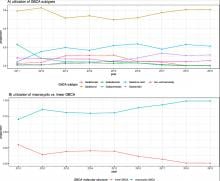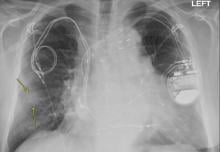October 29, 2020 — Contrast agents used to improve views of the heart on magnetic resonance imaging (MRI) carry a very low risk of allergic reactions, vomiting and other acute adverse events, according to a large study from Europe published in Radiology: Cardiothoracic Imaging.[1] The findings come three years after the European Union enacted new regulations on the contrast agents.
© Copyright Wainscot Media. All Rights Reserved.
Subscribe Now



